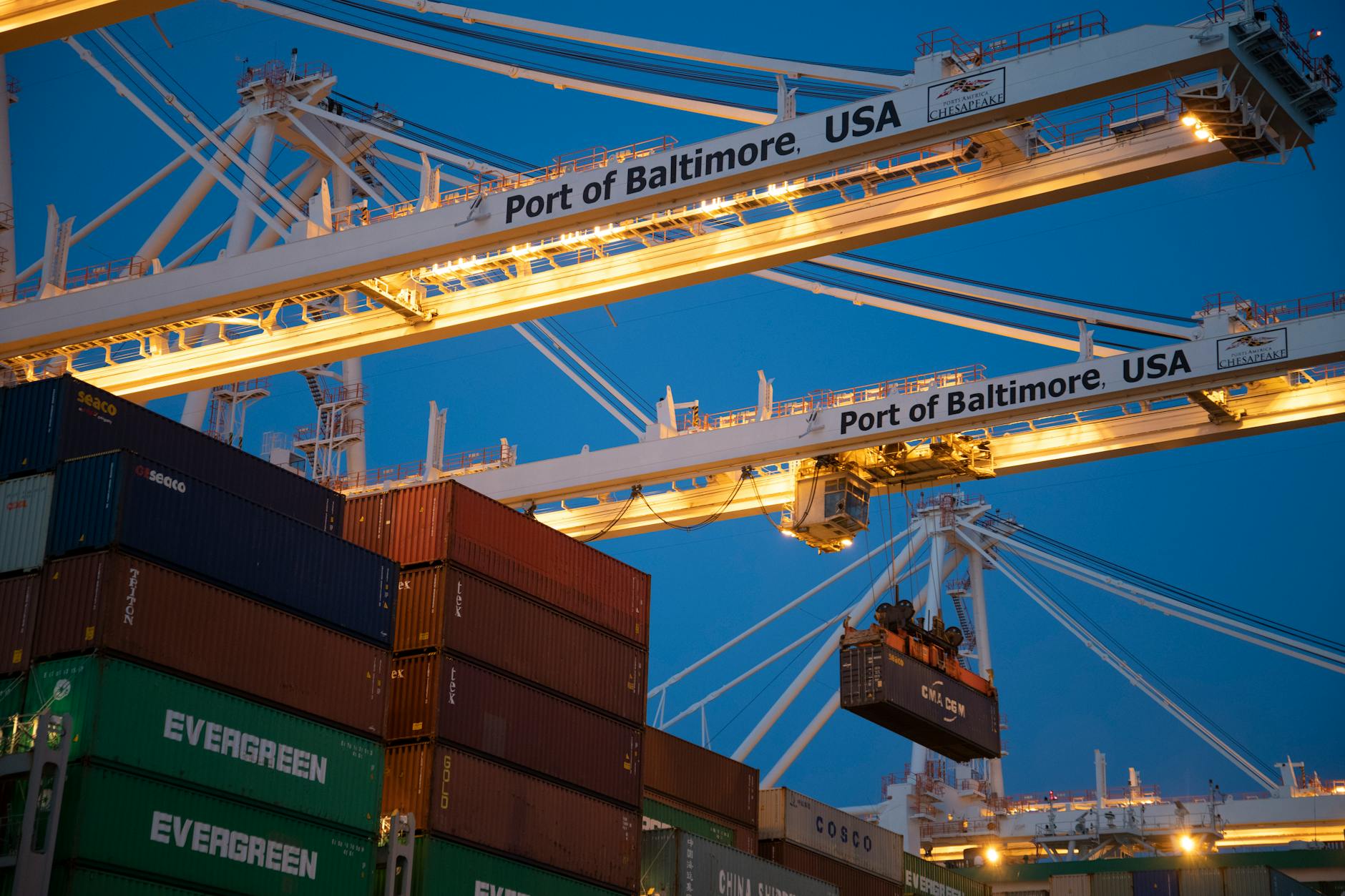How to Implement Sustainable Logistics Practices in Australia

Understanding Sustainable Logistics
In our commitment to sustainable logistics, embracing efficient pick and pack systems can significantly reduce environmental impact. This approach is prevalent among eco-friendly startups in Collingwood, where businesses focus on reducing excess packaging and minimising waste. Such systems streamline the process by selecting the appropriate items and packaging them in the most resource-efficient manner, thus lowering carbon emissions associated with shipping. It's a small yet substantial step towards sustainable logistics solutions.
Key Principles in Practice
For those deeply engaged in the logistics sector, integrating sustainable methods begins with a few pivotal principles. One core tactic is minimising energy consumption during pick packing using intelligent warehouse design. Additionally, prioritising renewable energy sources to power warehousing operations and employing biodegradable packing materials align logistics operations with environmental goals.
Benefits of Eco-Friendly Strategies
By leaning into eco-friendly logistics strategies, businesses can expect reduced operational costs and lower carbon footprints. This strategic shift not only adheres to sustainability goals but also enhances brand reputation among environmentally conscious consumers. But it's not just about reputation; cost savings through energy efficiency and reduced waste play a significant role. Furthermore, sustainable practices often result in a healthier workplace environment, fostering employee satisfaction and retention.
Current Trends in Australia
In Australia, the trend towards sustainable logistics is gathering momentum with an increasing focus on digital integration and automation. Innovation labs at Docklands are pioneering efforts in this space, researching and implementing AI-driven inventory management and robotics to optimise the supply chain. As efficiency gains traction, more businesses are expected to integrate these sustainable logistics strategies, setting a benchmark for future practices in the e-commerce sector.
Technological Innovations
Incorporating technology into logistics can significantly enhance eco-friendly efficiencies. Automation tools simplify the order fulfilment process, enabling businesses to meet consumer demands while minimising resource consumption. In places like the innovation labs at Docklands, companies are leveraging automation not just for efficiency but also to promote sustainable logistics practices.
Integrating Automation Tools
Automation tools are pivotal in streamlining logistics. They can manage inventory, optimise transportation routes, and automate packing, all while reducing human error. This not only speeds up services but also aligns with the goals of sustainability-focused co-working spaces in Richmond, aiming to cut waste and energy use. For startups aiming to scale, implementing these tools can bridge the gap between demand and responsibility.
Role of Data Analytics
Data analytics plays a vital role in refining logistics operations. By analysing real-time data, logistics providers can make informed decisions that reduce inefficiencies. For example, data analytics can predict demand patterns, thus preventing overproduction and excess inventory. This function supports the mission of eco-friendly startups in Collingwood as they strive to maintain a balance between innovation and environmental impact.
Cloud-Based Solutions
Cloud-based solutions facilitate seamless collaboration within the logistics chain, enhancing transparency and communication among all stakeholders. They allow real-time tracking and updates, vital for maintaining an efficient supply chain while reducing carbon footprints. As third party logistics providers adopt these solutions, they contribute to reducing emissions by optimising resource use. For startups, these solutions offer scalability without heavy infrastructure investments, fostering growth aligned with sustainability principles.
Implementing Strategies
Step-by-Step Green Initiatives
Shaping a sustainable ecommerce logistics system requires pinpointing actionable initiatives that align with your sustainability goals. One approach is to partner with eco-friendly suppliers who share similar values, ensuring every step of your supply chain embodies sustainability. Consider adopting biodegradable packaging, a small step that significantly reduces landfill waste. Over in Collingwood, eco-friendly startups are embracing these practices, demonstrating their viability and appeal. Additionally, switching to renewable energy sources, like solar power, for warehouses can further reduce your carbon footprint.
Optimizing Supply Chain
Enhancing the efficiency of supply chain operations involves integrating technology with green strategies. By relying on intelligent forecasting tools, businesses can minimise excess inventory, reducing waste and improving cost efficiency. Additionally, collaborating with 3PL providers can streamline logistics processes, allowing companies to focus on core competencies while maintaining sustainable practices. Utilising data analytics effectively can reveal areas for improvement, enabling more responsive adjustments across the supply chain network. The innovation labs at Docklands highlight the synergy between technology and logistics, driving continuous improvement.
Waste Reduction Techniques
Effective waste reduction relies on adopting both technology-driven solutions and mindful practices. Start by implementing recycling programs in all operational areas, and consistently review waste management processes for inefficiencies. Composting organic waste in cafeterias or employee communal spaces can further cut down on landfill contributions. Emphasising employee education programs about waste reduction and sustainability will foster a culture of responsibility. As seen in sustainability-focused co-working spaces in Richmond, these collective efforts are not just feasible but essential for holistic, sustainable growth.
Overcoming Challenges
Balancing Innovation and Practicality
Navigating the balance between innovation and practicality in logistics can be a delicate task. As an eco-focused logistics expert, I find it vital to focus on sustainable logistics strategies that meld technological advancements with pragmatic approaches. Imagine the innovation labs at Docklands, where cutting-edge technology intersects with functionality, exemplifying the balance I strive to maintain. Integrating tools like 3PL logistics, which offer scalable solutions for order fulfilment and inventory management, is crucial for maintaining this balance. These tools not only enhance efficiency but also align with sustainability goals, offering a dual benefit of operational improvement and environmental accountability.
Navigating Regulatory Considerations
In Australia, staying informed about fluctuating regulatory landscapes is key to maintaining compliant operations. Regulations often affect logistics networks, and an awareness of these guidelines helps ensure the seamless integration of sustainable logistical practices. Being proactive with compliance not only supports legal adherence but also strengthens community trust. Collaborations with eco-friendly startups in Collingwood can provide insights specific to local requirements, enriching both strategic planning and regulatory navigation.
Managing Resource Constraints
Resource constraints pose another significant challenge in logistics. Prioritising resource optimisation through innovative technologies and collaborative efforts can drive significant improvements. Effective resource management reduces waste and maximises utilisation, key components of a sustainable logistics model. Sustainability-focused co-working spaces in Richmond might offer the collaborative opportunities needed to rethink resource allocation sustainably. These strategies contribute to a logistics framework that's both efficient and mindful of environmental impact, empowering businesses to thrive sustainably.
Best Practices
Enhancing Collaboration
In the pursuit of sustainable logistics, enhancing collaboration remains a cornerstone. Engaging with eco-friendly startups in Collingwood can unlock innovative solutions, leveraging unique perspectives from the vibrant startup ecosystem there. By fostering partnerships within the innovation labs at Docklands, we tap into cutting-edge technologies that can drive our logistics operations towards a greener future. Embracing a cooperative approach ensures that various stakeholders— from suppliers to customers— are aligned in achieving sustainability goals.
Continuous Improvement
Continuous improvement in logistics isn't just a buzzword; it's an essential practice for maintaining a competitive edge in sustainability. Embrace the rich diversity of Melbourne's sustainability-focused co-working spaces in Richmond to promote knowledge sharing and innovation. This helps in adopting iterative processes, enabling logistics teams to identify inefficiencies swiftly and implement more environmentally friendly practices. Regularly assessing logistics operations and incorporating feedback is key to keeping strategies fresh and effective.
Successful Case Studies
Examining successful case studies provides valuable insights into what works in sustainable logistics. By analysing the achievements of companies that have effectively integrated sustainable logistics strategies, we can create a blueprint for success. Learning from others' experiences aids in identifying practical steps, such as minimising carbon footprints and optimising delivery routes. Implementing these best practices empowers us with the confidence to refine and revolutionise our logistics systems, contributing to a more sustainable future.


